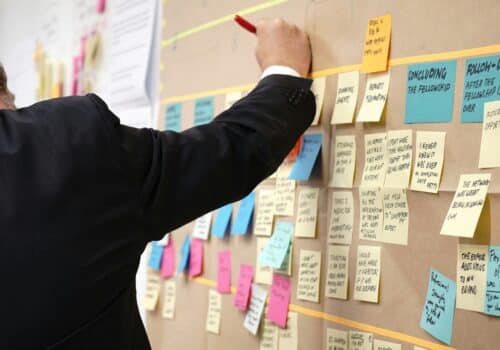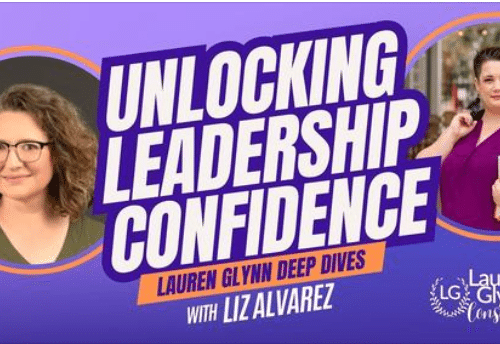A CEO’s Number-One Task? Know Thyself.
Why is self-awareness so important in general, and why is it important for CEOs specifically?
“There is something that is rarely talked about in the business world and I want to start building more attention for it. That thing is self-awareness.” -Gary Vaynerchuk
According to entrepreneur and internet personality, Gary Vaynerchuk, self-awareness isn’t being talked about enough in business circles, and he contends that lack of self-awareness is making people unhappy. For Vaynerchuk it’s simple, get to know your strengths and your weaknesses, and instead of focusing energy on fixing your weaknesses, double-down on your strengths instead.
While we at Syte totally agree, we recognize that we can’t suggest to the business leaders that we work with that they become more self-aware and leave at that. The whole topic begs the questions, why is self-awareness so important and how do I become more self-aware?
Our preliminary research on why self-awareness is important in leadership reveals a relationship between self-knowledge and how you behave and relate to others:
“Being aware of one’s strengths, weaknesses, style, personality, preferences, etc., has a significant impact on how leaders behave and interact with others.” (Iowa State University blog article)
“Dr. Travis Bradberry . . . defines emotional intelligence as your ability to recognize and understand emotions in yourself and others, and your ability to use this awareness to manage your behavior and relationships.” (Forbes)
“It demonstrates a capacity to honestly evaluate your own actions beliefs and impact on others.” (Thrive Global)
In each of these articles, self-awareness is described as the knowledge of your own strengths and weaknesses in such a way that it creates an openness to the fact that someone else, a teammate or partner with different strengths and weaknesses, might complement and amplify your own capabilities.
At Syte, we characterize self-awareness and leadership like this: knowing yourself means coming to terms with your strengths and my weaknesses. Acknowledging both allows you to engage others with grace and humility. That in turn creates a culture within your team or organization that allows each person to uniquely “show up” and contribute in their areas of strength for the benefit of the group while also encouraging the team to back one-another up to mitigate individual weaknesses.
Put more simply, a self-aware leader is more empathetic because she knows that the team is “in it” together and will provide cover for one another’s weaknesses when things get tough.
How do you become more self-aware?
Well, we wish it was as easy as telling you the way to become more self-aware. If there was one way, we’d be sure to register a trademark for it, that’s for sure! But, let’s go back to what Vaynerchuk states in his article and recognize that, “what works for one person doesn’t work for everyone.”
There are multiple ways to look at increasing your own self-awareness. For example, the Forbes article cited above breaks self-awareness down to gathering trusted feedback, considering the circumstances, assessing behaviors in light of your values and priorities, and staying curious.
In contrast, Six Seconds is an organization that writes a lot about emotional intelligence. They view self-awareness as one part of a larger journey to increased emotional intelligence. Tune-in, respond, and connect are three steps that one takes to become more emotionally intelligent, with tune-in being the “knowing self” or self-awareness step.
At Syte, we agree with Vaynerchuk in encouraging business leaders to play to their strengths, and we help them find their strengths by using assessments like the Myers-Briggs, StrengthsFinder, and the Enneagram (here, here, and here). But, even before that, we take the time to know the business leaders that we work with. The operative term being take the time.
No awareness, of the self or otherwise, can come without taking the time and creating the space to become more aware. Awareness comes to those who take the time to slow down and become curious about their circumstances and reactions, their thoughts and feelings. This time-taking and space-creating can only happen when we eliminate the nonessential in favor of the essential, a subject adeptly covered by Greg McKeown in his book Essentialism. Suffice to say, taking the time to become more self-aware is, indeed, essential.
Are you a CEO, entrepreneur, or leader who is looking to become more self-aware and would like to know where to start? Give us a call to arrange a free 30-minute call with a Syte team member. By taking the time to get to know you, we can help you get to know yourself more deeply.
ERP Readiness Self-Assessment
Is your organization ready for a new or upgraded ERP solution? Find out with this complimentary self-assessment.
Doing Business Better
You strive for excellence, believe in your people, and want to do things right the first time. And you know that you need help to get to the heart of your business challenges and make the best choices for the future of your privately held manufacturing and distribution company. That’s where we come in.
We help you focus and find exactly the right path to accelerated growth and sustainable success — from your people to your processes to your ERP software.



